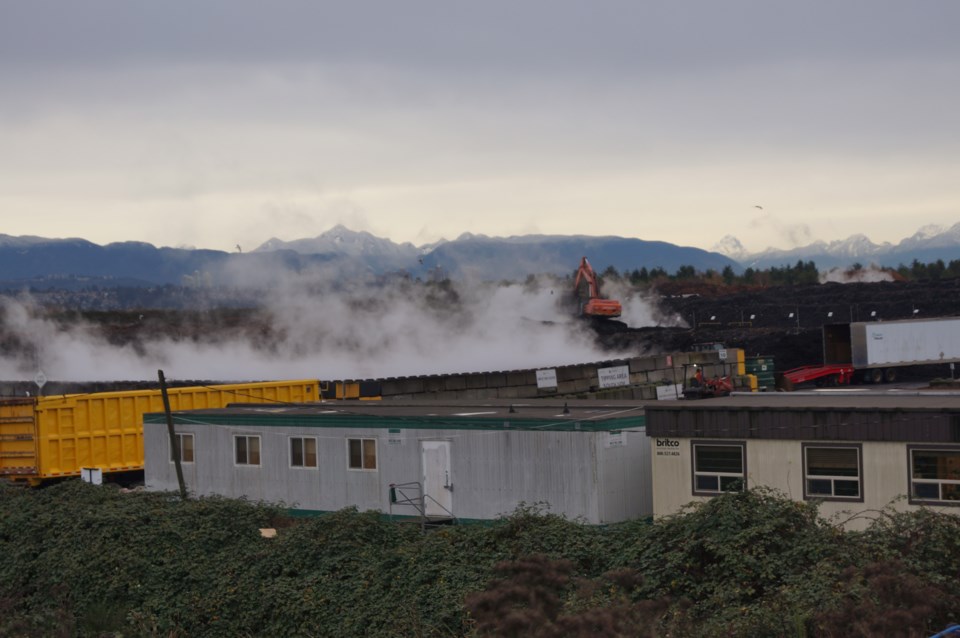Officials at a smelly east Richmond compost facility are “disappointed” that the city plans to divert some of its organic waste to another composter.
“While we understand what the city has done and why they’ve done it, we’re a bit disappointed with it,” said Stephen Bruyneel, spokesman for Harvest Power.
“At the same time we understand why they did it and we’re looking forward to working with them over the weeks to come.”
The composting and biofuel facility that Harvest Power runs on York Road receives most of Metro Vancouver’s green waste — 225,000 tonnes a year — and has been the subject of more than 1,200 odour complaints over the past year.
On Monday, the City of Richmond announced that on Jan. 1 it will divert all organic waste from its multi-family program to another facility.
City spokesman Ted Townsend was unable, due to contractual reasons, to say how many tonnes of waste that will represent. Townsend was also unable to say where the waste will be taken because a new agreement has not yet been signed. The move will cost the city $18,880 annually.
Mayor Malcolm Brodie told Postmedia on Tuesday that the diversion will provide “short-term relief” from the odour issue.
Metro Vancouver, which manages waste disposal for the region and also regulates air quality, has already diverted 40,000 tonnes of organic waste from Harvest Power to Enviro-Smart Organics in Delta. The waste is coming from the North Shore transfer station (16,000 tonnes) and the City of Vancouver (24,000 tonnes).
“Metro Vancouver’s actions have definitely been in response to the challenges at Harvest Power,” said Paul Henderson, Metro’s solid waste services manager.
Metro Vancouver has been in discussions with Harvest for weeks about diverting the material to help reduce the odour, and the change occurred over the past two weeks. Henderson said the diversion is temporary.
“The rationale being we want to work with Harvest to provide them the opportunity to effectively process material at that site,” said Henderson.
“Our expectation is once the challenges at Harvest have been resolved, the materials will be moved back into the Harvest system.”
Bruyneel said Harvest just received the details about Richmond’s decision on Tuesday night and will need time to determine how the waste diversion by the city and Metro Vancouver will affect its business.
Metro Vancouver is also initiating a composting best practices study, and plans to write to Harvest to advise that if facility operations are not improved to control odour within 90 days, the Greater Vancouver Sewerage and Drainage District will consider Harvest in default of its organics processing contract and request that organics accepted by the facility be limited to regional sources.
Richmond has made a similar request to remedy odours within 90 days, per its service agreement.
Metro Vancouver issued an air quality management permit to Harvest on Sept. 30, which is valid until April 2020. Harvest has appealed the permit because of “unreasonable, vague, arbitrary” requirements and guidelines around odour issues. This includes facility-wide emissions requirements that would allow Metro to prevent Harvest from accepting food waste due to odour issues. Twenty-four groups have also appealed the permit, and the City of Richmond was recently granted full party status in the appeals despite joining the process late.



